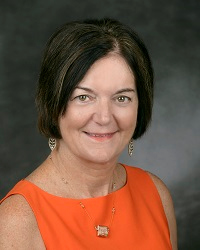Interview with Dr. Gayle Roux: Addressing the Shortage of Nursing Deans

Dr. Gayle Roux
Interim Nursing Dean
Registry Member
In a recent conversation, Gayle Roux shared her insights on the reasons behind the limited number of nursing deans in higher education. She noted that the market for nursing deans is gradually opening up, particularly for those interested in working with The Registry. However, several barriers persist, notably the fact that less than 1% of nurses hold a Ph.D. As many current deans with advanced degrees retire, the pipeline for new leadership is shrinking.
Roux emphasizes that the motivations for many professional nurses are multifaceted. While the desire to give back to the profession remains strong, many are reassessing their career paths. The COVID-19 pandemic has prompted a shift in perspective; more nurses are considering stepping down from dean roles but still wish to contribute meaningfully to the field.
“The Registry serves as a strong advocate for faculty candidates, especially regarding interim market salaries,” Roux explained. She believes that while nursing professionals want to give back, they also seek positions that are advantageous for their careers. Currently, the compensation for a dean of nursing typically falls between $200,000 and $250,000 at mid-sized universities, aligning closely with deans in business but often exceeding those in liberal arts.
When discussing the path to a Ph.D., Roux remarked on the increasing number of role models inspiring students to pursue graduate studies. This drive is often fueled by a personal passion for science and research, yet the profession continues to face challenges stemming from its historical roots as a female-dominated field. Despite efforts, enrollment in Ph.D. programs remains stagnant, particularly in public health.
Reflecting on her own journey, Roux earned her Ph.D. from Texas Woman’s University 32 years ago, a decision influenced by her desire for deeper knowledge in nursing research. She highlighted the importance of strong partnerships between The Registry and leading academic institutions, noting that a Ph.D. is often essential for deans to effectively interface with top-tier nursing schools.
As Roux articulately addresses these issues, it becomes clear that the future of nursing leadership relies not only on addressing barriers to advancement but also on fostering a supportive network for aspiring deans. The ongoing evolution in nursing education, influenced by recent events, presents both challenges and opportunities for the next generation of leaders in the field.
Interview with Dr. Gayle Roux: Addressing the Shortage of Nursing Deans

Dr. Gayle Roux
Interim Nursing Dean
Registry Member
In a recent conversation, Gayle Roux shared her insights on the reasons behind the limited number of nursing deans in higher education. She noted that the market for nursing deans is gradually opening up, particularly for those interested in working with The Registry. However, several barriers persist, notably the fact that less than 1% of nurses hold a Ph.D. As many current deans with advanced degrees retire, the pipeline for new leadership is shrinking.
Roux emphasizes that the motivations for many professional nurses are multifaceted. While the desire to give back to the profession remains strong, many are reassessing their career paths. The COVID-19 pandemic has prompted a shift in perspective; more nurses are considering stepping down from dean roles but still wish to contribute meaningfully to the field.
“The Registry serves as a strong advocate for faculty candidates, especially regarding interim market salaries,” Roux explained. She believes that while nursing professionals want to give back, they also seek positions that are advantageous for their careers. Currently, the compensation for a dean of nursing typically falls between $200,000 and $250,000 at mid-sized universities, aligning closely with deans in business but often exceeding those in liberal arts.
When discussing the path to a Ph.D., Roux remarked on the increasing number of role models inspiring students to pursue graduate studies. This drive is often fueled by a personal passion for science and research, yet the profession continues to face challenges stemming from its historical roots as a female-dominated field. Despite efforts, enrollment in Ph.D. programs remains stagnant, particularly in public health.
Reflecting on her own journey, Roux earned her Ph.D. from Texas Woman’s University 32 years ago, a decision influenced by her desire for deeper knowledge in nursing research. She highlighted the importance of strong partnerships between The Registry and leading academic institutions, noting that a Ph.D. is often essential for deans to effectively interface with top-tier nursing schools.
As Roux articulately addresses these issues, it becomes clear that the future of nursing leadership relies not only on addressing barriers to advancement but also on fostering a supportive network for aspiring deans. The ongoing evolution in nursing education, influenced by recent events, presents both challenges and opportunities for the next generation of leaders in the field.
HIRE AN INTERIM
Searching for an Interim?
Please contact us for more information.

